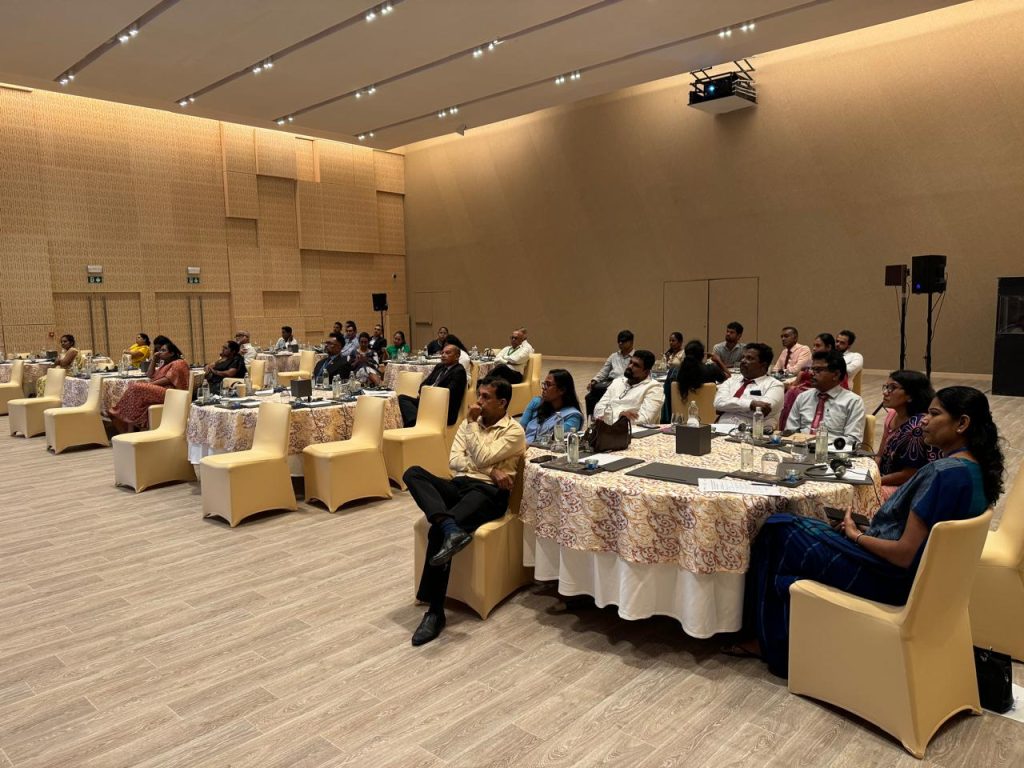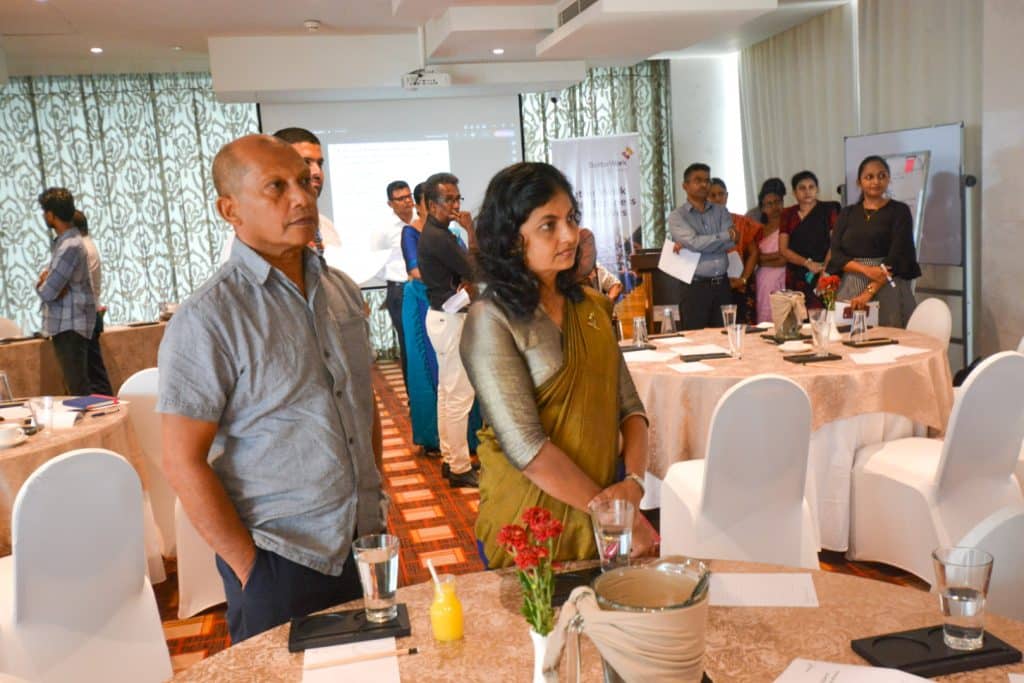Since late 2024, changes have been afoot in Sri Lanka’s garment industry – efforts are underway to shape a more inclusive apparel industry through the “Inclusive Threads” initiative. Led by Better Work Sri Lanka, with support from the Australian Department of Foreign Affairs and Trade (DFAT), the initiative, launched in December 2024, focuses on strengthening vocational training institutes, equipping employers, workers and government representatives with knowledge on disability inclusion, and promoting accessibility across the industry.
At its core, the program aims to integrate persons with disabilities into the workforce, demonstrating a strong collaboration between the public and private sectors to foster meaningful transformation for the industry as well as the individuals who will be integrated into the workforce as a result of this work.
“This initiative is not just about inclusion—it’s about innovation. Recognizing the untapped potential of persons with disabilities will help shape a workforce that truly reflects our values of diversity and accessibility, says Mr Vajira Ellepola, Director General of the Employers’ Federation of Ceylon.

Mr Yohan Lawrence, Secretary-General of the Joint Apparel Association Forum (JAAF), equally emphasized the importance of the initiative for the sector:
“Diversity and inclusion are vital to building a resilient and forward-looking apparel industry. Inclusive Threads offers a unique opportunity to dismantle barriers and unlock the potential of persons with disabilities, ensuring their full and meaningful participation in the workforce.”
Inclusive Threads represents a bold step forward for Sri Lanka’s apparel sector, paving the way for a future where opportunity is accessible to all. By raising awareness, promoting inclusive practices, and offering practical training pathways, the program empowers persons with disabilities to contribute meaningfully, not only to the industry, but also to the broader economy.
The Department of Social Services (DSS) will be a key implementation partner for the project with its mandate to support and empower people who are in disadvantaged situations enabling them to actively contribute to the country’s development. The launch of the project therefore also received strong endorsement from Ms Darshani Karunarathne, Director of the DSS, who highlighted the role of cross-sector collaboration:
“Private sector engagement is crucial to enhancing employability and creating a more inclusive labour market for persons with disabilities.”
Ms Joni Simpson, ILO Country Director, connected the initiative to global frameworks:
“Inclusive Threads aligns with the principles of the UN Convention on the Rights of Persons with Disabilities (UNCRPD). Through collective action, we can drive systemic change and ensure equal opportunities for all.”
Milestone: Sri Lanka validates inclusive sewing curriculum
Building on this momentum, the initiative recently reached another milestone in May 2025: the validation of an inclusive sewing curriculum designed for persons with disabilities. In a national workshop, a diverse group of stakeholders from Sri Lanka’s apparel sector validated a newly upgraded apparel manufacturing curriculum tailored for persons with disabilities. This event marked a significant step toward inclusive skills development and decent work for all.
The workshop, titled “Inclusive Threads: Validating Apparel Manufacturing Curriculum at Vocational Training Institutes,” brought together representatives from apparel manufacturers, vocational training institutes, the Department of Social Services, the Vocational Training Authority, the Tertiary and Vocational Education Commission, the Employers’ Federation of Ceylon’s Disability Resource Centre, organizations of persons with disabilities, and international development partners.

At the heart of the workshop was the validation of the Industrial Sewing Machine Operator (ISMO) course—revised to ensure accessibility, relevance, and alignment with industry needs. The curriculum aims to equip persons with disabilities with the skills and confidence to enter and thrive in Sri Lanka’s globally competitive apparel industry.
Opening the event, Darshani Karunarathne, Director of the Department of Social Services, emphasized the transformative power of inclusive education:
“Skills training is the bridge to opportunity. For persons with disabilities, access to industry-aligned courses can transform lives and open doors to sustainable livelihoods.”
Indika Liyanahewage, Executive Committee Member of the Joint Apparel Association Forum (JAAF), highlighted the industry’s role in driving inclusive growth:
“To remain globally competitive, Sri Lanka’s apparel sector must ensure that no one is left behind. A curriculum that blends accessibility with market-driven skills is essential to building a future-ready workforce.”
The International Labour Organization, which has provided technical guidance throughout the curriculum development process, was represented by Ms. Manoja Polwatte, an external collaborator. Her presentation detailed the inclusive features of the revised ISMO course, including adapted equipment, inclusive teaching methodologies, and structured learner progression pathways.

Participants engaged in collaborative validation sessions, offering practical feedback to refine the curriculum further. Discussions also focused on implementation strategies, with vocational training institute representatives outlining plans to roll out the ISMO course across selected centres in the coming months.
The workshop concluded with a shared commitment to advancing inclusive training and employment opportunities, reinforcing the belief that inclusivity is not just a goal—but a foundation for sustainable development in Sri Lanka that extends beyond the apparel sector.